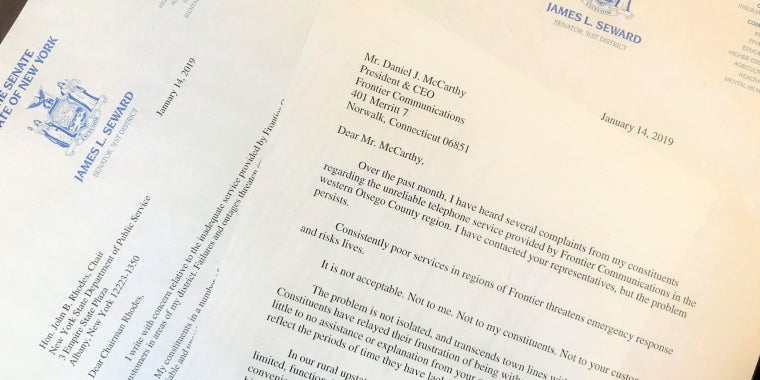
All Crimes DNA Law Will Help Protect New Yorkers
James L. Seward
March 15, 2012

ALBANY, 03/15/12 – State Senator James L. Seward (R/C/I-Oneonta) announced today that the New York State Senate has passed legislation that will implement the largest expansion of the state’s DNA databank since it was created in 1994.
“DNA is a proven crime-fighting tool. Expanding its use provides police and prosecutors with the means to put more lawbreakers behind bars and offers another layer of protection for the public,” said Senator Seward. “More crimes will be solved, more criminals will be brought to justice and more innocent individuals will be exonerated through the databank expansion.”
The DNA databank expansion, which has been agreed to by Governor Cuomo and the state assembly, will help close thousands of unsolved cases, bring justice to crime victims and take dangerous criminals off the street preventing future crimes.
“New York State government is working. This landmark legislation is another example of what can be accomplished when New Yorkers work together toward a common goal,” Seward added
The senate previously approved a DNA databank expansion bill last year with the strong support of district attorneys and crime victims’ advocates from throughout the state. Governor Andrew Cuomo also included a similar measure as part of his 2012 budget, and the senate passed a bill, co-sponsored by Senator Seward, in January that mirrored his proposal.
The new legislation requires anyone convicted of a felony or penal law misdemeanor to provide a DNA sample, dramatically expanding the information pool used by law enforcement and prosecutors.
Since its inception, the state’s DNA databank has transformed criminal investigations and prosecutions to make them more accurate and effective, in addition to helping exonerate the innocent.
However, up to this point DNA has only been collected from fewer than half of convicted criminals because the previous law did not include certain crimes. This hampered the ability of law enforcement to solve crimes, and enabled some criminals to remain free to commit additional acts of violence.
“Studies show, criminals that commit serious crimes, like rape and murder, have often committed lower level offenses previously. By collecting DNA, repeat offenders can be caught sooner and taken off the street, avoiding further tragedy and saving innocent lives,” Seward added.
-30-
Share this Article or Press Release
Newsroom
Go to NewsroomAnalysis of 2019-20 Governor's Budget Proposal
January 23, 2019

Seward Calls for Frontier Fix
January 22, 2019

Senator Seward Highlights 2019 Priorities
January 17, 2019

Seward Receives Committee Assignments
January 10, 2019
